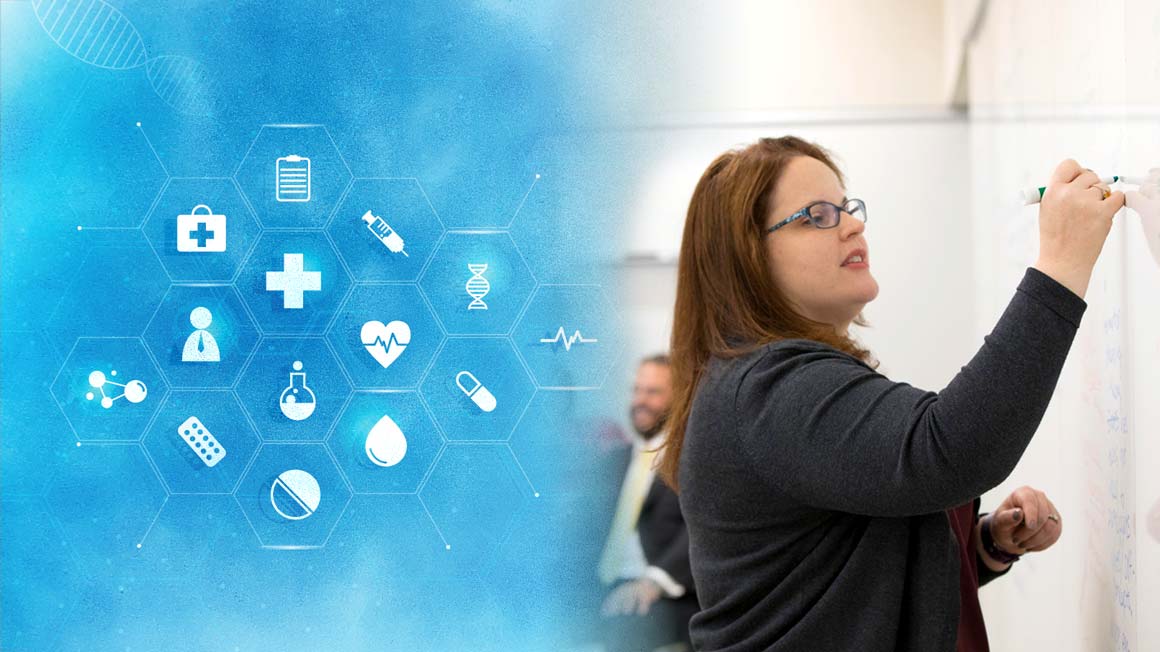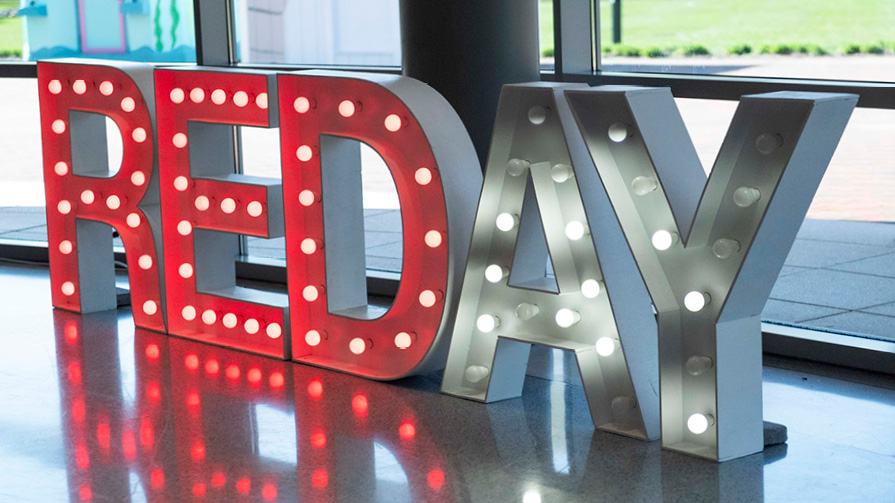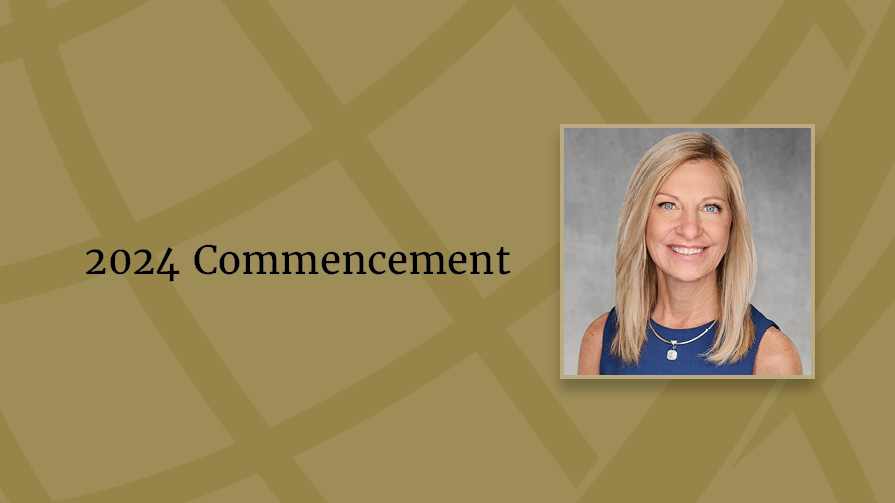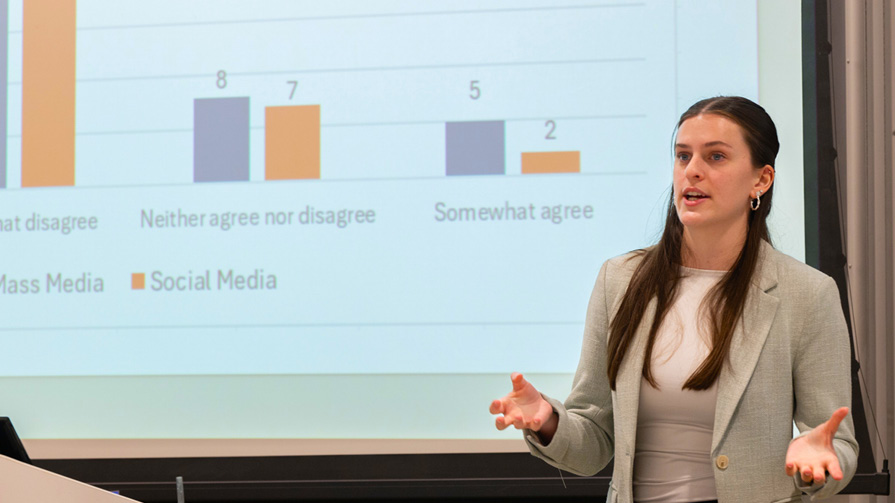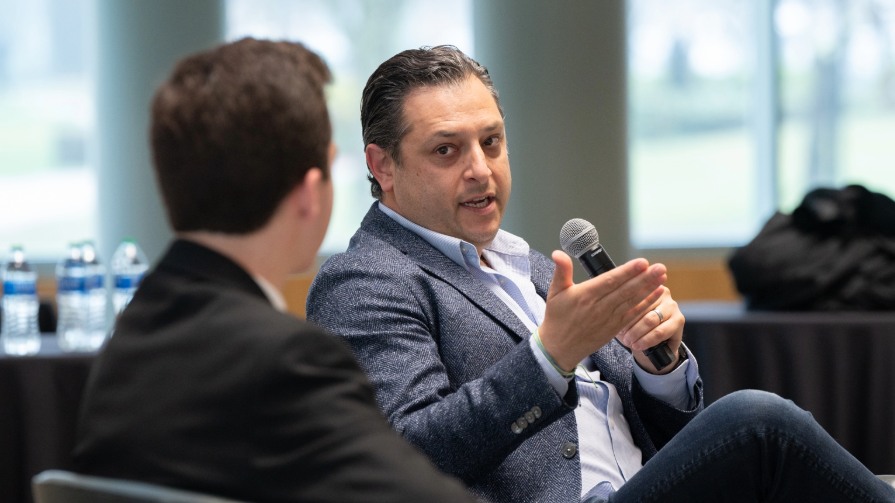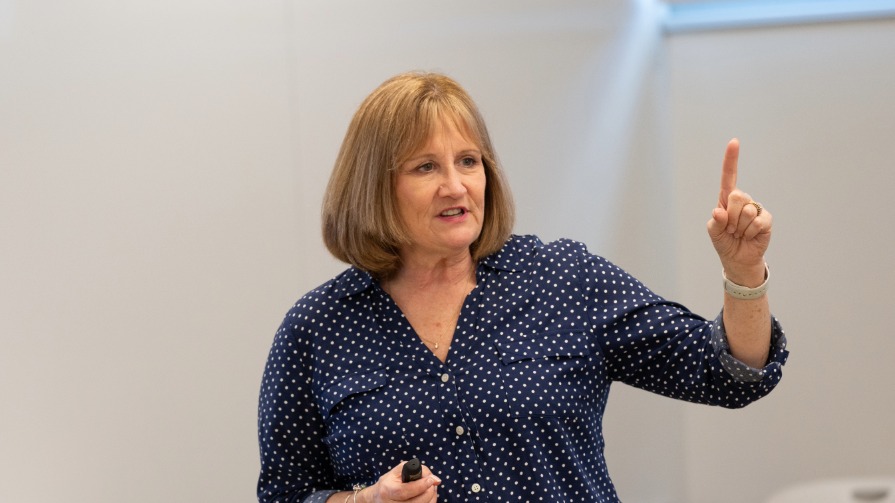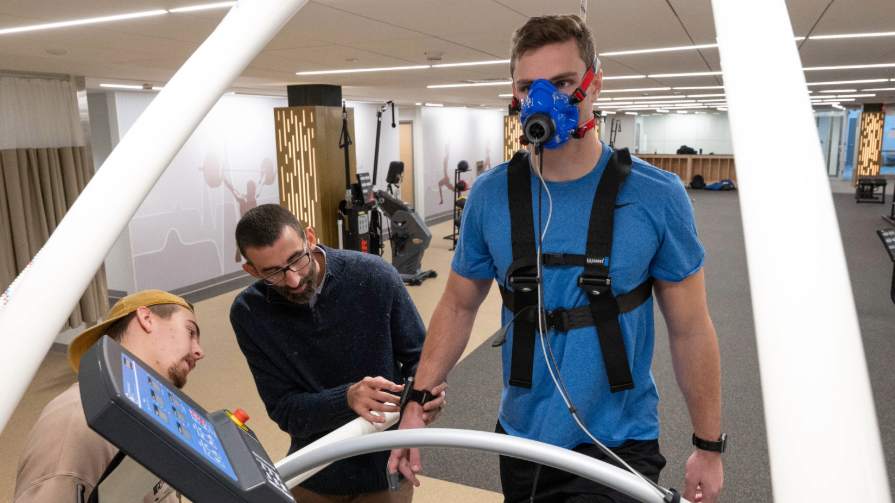Talking about health, especially when you’re trying to share important ideas with large groups of people, can be complicated, notes Assistant Professor of Communication Julie Volkman, Ph.D. “It's a complex process and there's a lot of factors involved, things like stigma, and breaking down complex ideas and considering relationships,” she says.
In Bryant’s Advanced Health Communication: Health Campaigns course, students learn how to make that conversation easier. By examining health messages from different sources and channels, and analyzing them from a variety of perspectives, they’re introduced to both the concepts behind health campaigns and the practical steps needed to create and successfully run one.
Their explorations aren’t limited to theory. Working in teams, the class designs and implements campaigns that address health concerns facing their fellow students.
“It's an opportunity for students to think about the health issues they feel are the most important facing the Bryant community and how to address them,” says Volkman. “This is a course where you can decide what health changes you would like to see happen at Bryant.”
“It's a very nice intersection of a lot of different disciplines. ... I want to give students a big toolkit that they can pull from.”
In the course, students develop an understanding of the theories and models used in health communication, as well as the design and implementation of health campaigns. They also analyze past and current health campaigns to see what works, what doesn’t, and why.
Creating effective health campaigns requires such skills as research, media literacy, creativity, and communication of complex ideas. It also draws from a range of areas including biology, psychology and sociology. “It's a very nice intersection of a lot of different disciplines, which I really love and love teaching about,” says Volkman, who previously worked on public health campaigns and whose work has been published in Health Communication, Journal of Health Communication, Journal of Health Psychology, Patient Education & Counseling, Medical Care, Social Science & Medicine, and the Handbook of Health Communication. “I want to give students a big toolkit that they can pull from.”
“What I really like about the course is that it's not 100 percent lecture,” says Angelique Perrone ’20. “There’s lots of discussion and interactive components, and she’s really interested in our perspectives and opinions.”
“Because of this course, the students who take it are much more media-literate in general. They're not only taking in news, and information, but really deciphering it and the messages they're seeing.”
While the course is primarily focused on introducing the core ideas behind medical communication, the students say the lessons extend to any number of areas. “This is a very dynamic course and what you learn is very applicable, even outside the world of health communication,” notes Meaghan Angers ’20. “You learn how to listen to people, figure out what they need, and provide them with the information to make better choices. That’s important for any field.”
For Madeline Miranda ’20, who says taking the course inspired her to pursue a career in health communication, the lessons learned are especially important now, as health information from a variety of sources bombards people. “Because of this course, the students who take it are much more media-literate in general,” she says. “They're not only taking in news and information, but really deciphering it and the messages they're seeing.”
The course also taught her how to speak to her health care providers. “I think I have a much better relationship with them now because I have more of a perspective of where they're coming from and how I can talk to them so that I'm ensuring I'm understanding and getting the most out of the care they're providing.”
“When you're doing a project on a topic that really matters to you, and you get to choose how to tackle it, you're going to get a better result. You’re more willing to go above and beyond."
The campaigns
By creating campaigns to address issues facing the Bryant community, the students say, they can use what they’ve learned to help others. The subjects of their campaigns, chosen by the student teams, range from vaping to the opioid crisis, from epilepsy awareness to binge drinking. “This can be a very personal project for students,” Volkman says. “Many of them focus on issues that have affected themselves or someone they know, whether it be friends, family members, or others.”
“When you have so many different people in a classroom, doing so many different projects, it’s exciting to get a sense of what really matters to everyone,” says Miranda, who after talking with her fellow students and Bryant’s health center worked on a campaign focused on raising awareness of sexually transmitted diseases.
The campaigns are as diverse in form as the topics they cover. “I don't tell them you have to do a brochure, or you have to put out a table and talk to students in our student center,” notes Volkman. “They develop their campaign based on what they have learned about this health issue, and what they’ve learned from talking to people in your community.”
"My favorite part of the course was being able to talk to students and figuring out what they needed most. It gave me a chance to see what issues were important to the students on campus and how we can fix them.”
“When you're doing a project on a topic that really matters to you, and you get to choose how to tackle it, you're going to get a better result,” notes Perrone, who is collaborating with Angers on a project addressing job-search-related stress. “You’re more willing to go above and beyond."
The students are also energized by their potential to make a difference. “My favorite part of the course was being able to talk to students and figuring out what they needed most. It gave me a chance to see what issues were important to the students on campus and how we can fix them,” says Miranda. “I liked that a lot because I felt like I was working toward something that was going to help the Bryant community.”
“This is a way to give back to something greater than myself,” notes Angers. “I'm very much focused on going to work for a nonprofit organization after graduation and doing philanthropy work. So the course is helping me prepare to apply my skills and my knowledge in the field in order to help people and contribute to the medical world.”
